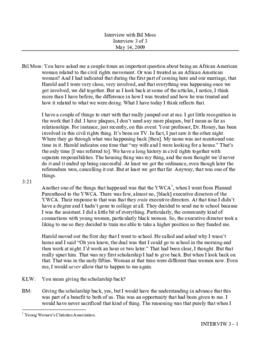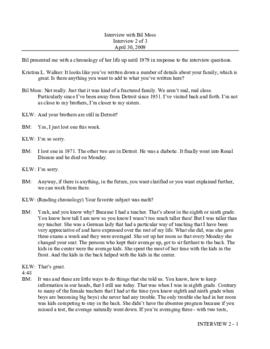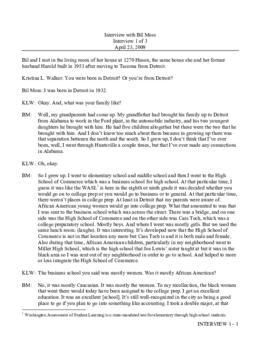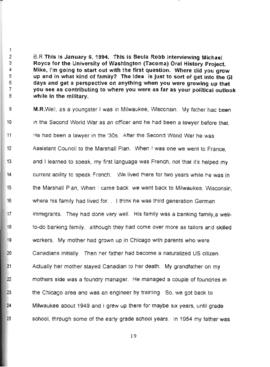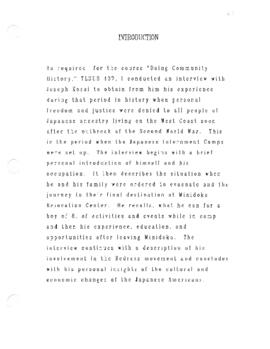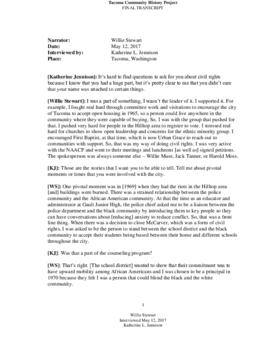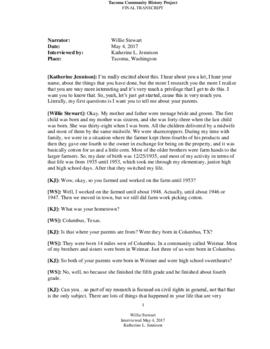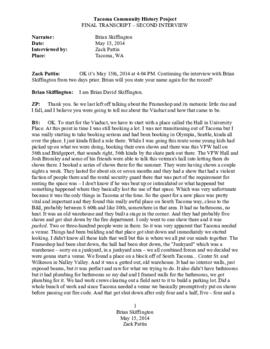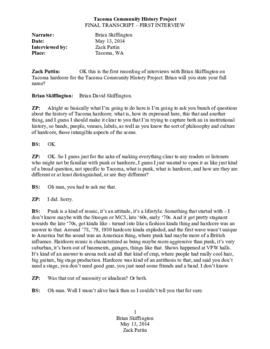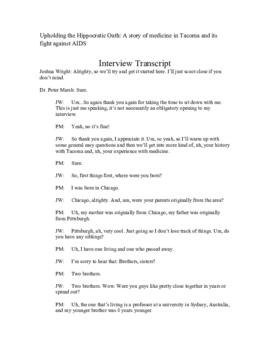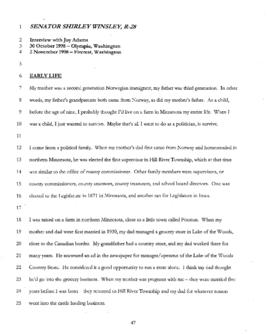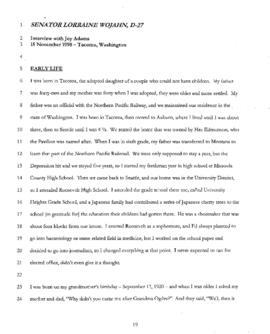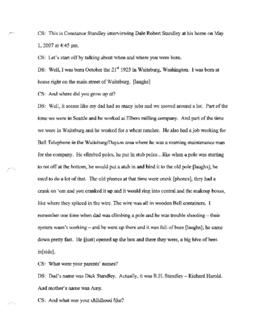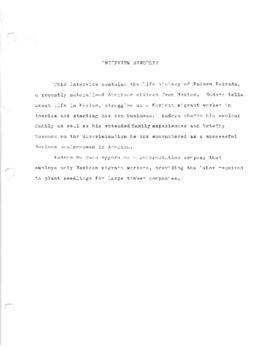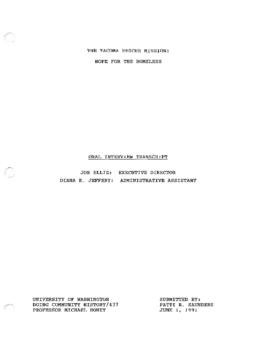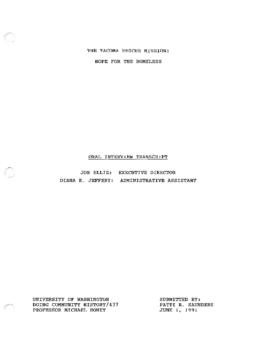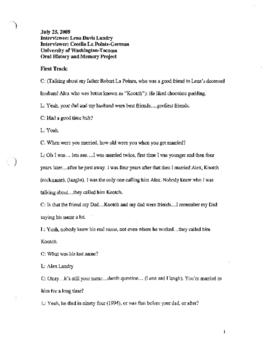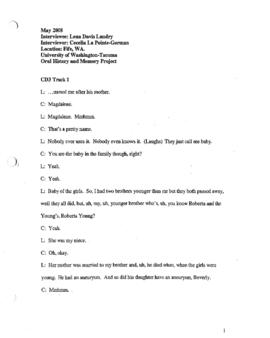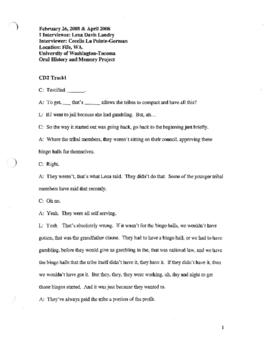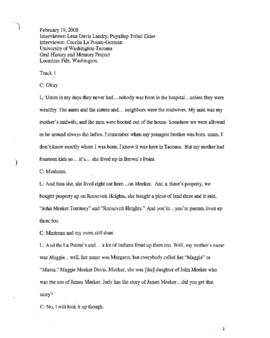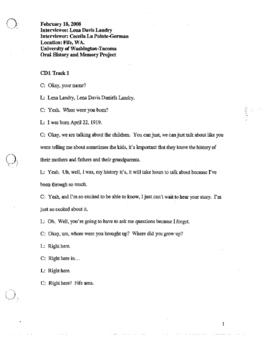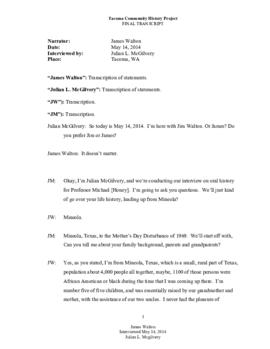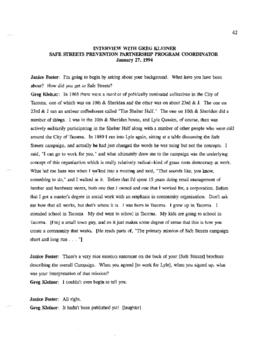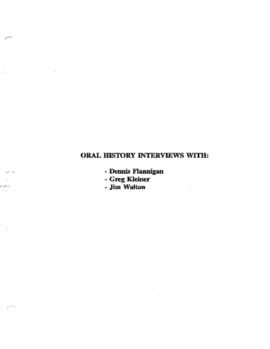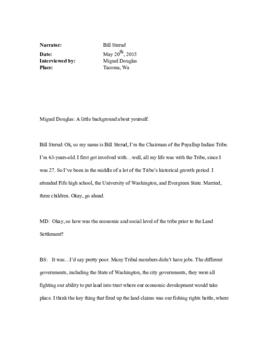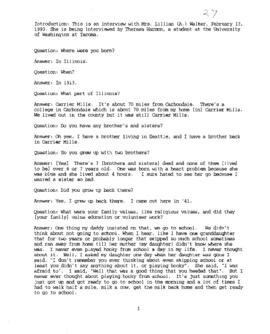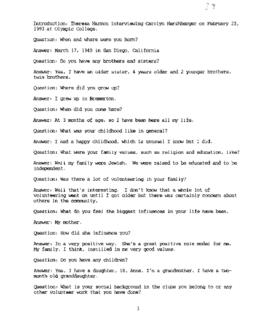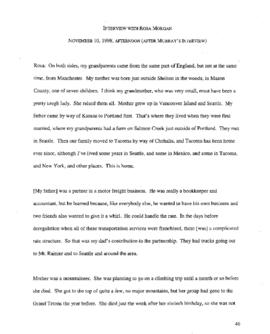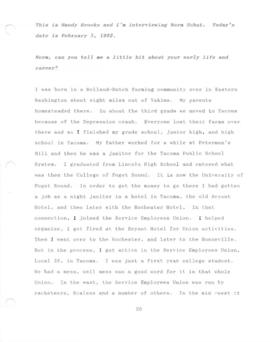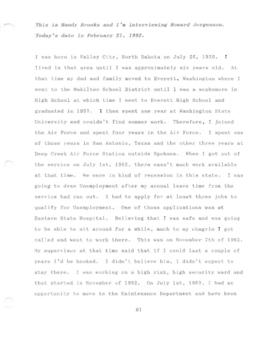Showing 153 results
CollectionsWinning the Hearst and Minds of Fort Lewis and McChord GIs During the Vietnam Era
- Item
- 1994
Oral history interview with Michael Royce by Beula Robb conducted 01/06/1994. Michael Royce discusses his time as a civil rights activist in the South and shares his thoughts on college life during the tumultuous 1960s. Drafted into the army following his graduation from college in 1968, Royce reflects on his military experience at Fort Lewis and talks about his involvement with the Lewis-McChord Free Press, an underground anti-war newspaper.
Why Internment? The Story of Japanese-Americans During World War II
- Item
- 1991
Oral history interview with Joseph Kosai by Arlene Mihara conducted 04/19/1991. The interview recounts Joseph Kosai's personal experiences as a Japanese American citizen forced to evacuate his Tacoma, Washington residence on May 18, 1942 in response to the issuing of Executive Order 9066. Joseph, who was eight at the time, was transported with family members, first, to an assembly center in Pinedale, California, then to Tule Lake, where Kosai's extended family was dispersed and sent to different camps. Joseph, his mother, and younger sister were sent to the Minidoka Relocation Center in Idaho, where they would remain until May 17, 1945. In the interview, Kosai recalls his impressions of life in the internment camp. He also describes his readjustment after being released from Minidoka, as well as the impact of discrimination upon his subsequent educational and career opportunities. He also discusses his involvement in the national redress movement and other civil rights issues.
Upholding the Hippocratic Oath: A Story of Medicine in Tacoma and its Fight Against AIDS
- Item
- 2015
Oral history interview with Peter Marsh by Joshua Wright conducted 05/28/2015. From the very beginning, Tacoma was met with illness in the form of typhoid. Disease would continue to wage war against the residents of the City of Destiny until the Fannie C. Paddock Memorial Hospital and St. Joseph Hospital were built in 1882 and 1891, respectively. Both organizations developed meaningful relationships with their community and ignited a behind-the-scenes competition which would benefit both patient and physician. Almost 100 years later, Tacoma was cared for predominantly by primary care physicians. It had just started to see an influx of medical specialists via Madigan Army Medical Center when the city was hit by HIV in 1983. With no effective cure at the time, Tacoma did its best to cope with the disease and its associated complications, and the infectious disease specialists were on the forefront. One of these few physicians was Dr. Peter Marsh. Born in Chicago in 1949, he was inspired to become a doctor as a young boy by the Dr. Kildare film series. Arriving in Tacoma in 1981, he would find himself in the middle of handling the AIDS epidemic, supporting patients as best as he could before they succumbed to the disease; that is, until the introduction of antiretroviral medications. Now able to effectively cure patients, Dr. Marsh found new life in his work and continued to serve his community until retirement in 2015. With the epidemic under control, Tacoma still utilizes what it learned from that chaotic era to stand prepared for anything thrown its way.
The U.S. Navy During World War II: One Mans Experience
- Item
- 2007
Oral history interview with Dale Standley by Constance Standley conducted 05/01/2007. Dale Standley discusses his U.S. Naval career and describes life aboard the USS Hatfield, a destroyer that patrolled the North American west coast during World War II.
- Item
- 1991
Oral history interview with Eudoro Estrada by Deborah D. Boyd conducted 05/03/1991. The interview discusses Eudoro Estrada's life in Mexico, his struggles when he first arrived in the United States, and his efforts to start and maintain what became a successful reforestation business. Estrada also describes his family life and briefly touches upon the discrimination he encountered as a Mexican American businessman in Washington State.
The Puyallup Land Claims Settlement: A Lesson in Struggle
- Item
- 2015
Oral history interview with Bill Sterud by Miguel Douglas conducted 05/20/2015. Examining the social, economical, and communal effects of the Puyallup Land Claims Settlement of 1990, this research essay explores these various elements through the assistance of an interview conducted with the current Puyallup Tribal Chairman, Bill Sterud. Sterud was also the Puyallup Tribal Chairman at the time of that the settlement took place, providing a vivid recollection of the Tribal community before and after the settlement and how the settlement changed the course of the Puyallup Tribe of Indians forever. This research essay also explores several of the major issues found within the non-Indian community surrounding the land claims settlement as well.
